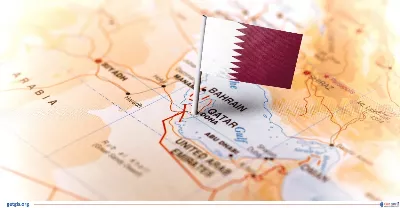Germany's Drive to Strengthen Ties with Third Nations
Updated On
-
Copy link
Germany is enthusiastic about broadening its development collaboration with India in strategic third-party countries.
Germany is enthusiastic about broadening its development collaboration with India in strategic third-party countries, one year after the two nations introduced a joint initiative to cooperate in Peru, Malawi, Ghana, and Cameroon.
Expanding Focus on Healthcare Initiatives
India and Germany have had a longstanding partnership centered on addressing climate change and promoting sustainability in various nations. However, Germany is now expressing its eagerness to diversify their collaborative efforts. They are keen on extending their joint initiative to include healthcare projects and the sponsorship of health-related research and development in Africa. This shift in focus reflects the evolving priorities of both countries and their commitment to tackling a broader range of global challenges.
Sustainable Development Goals (SDGs) in Focus
The ongoing projects initiated in 2022 share a common objective – to contribute to the achievement of the Sustainable Development Goals (SDGs) in third-party countries across Asia, Africa, and the Indo-Pacific. These projects encompass a diverse array of activities that range from empowering women in Malawi through agri-business to enhancing potato production in Cameroon through agri-tech solutions. By aligning their efforts with the SDGs, India and Germany are working towards addressing critical global issues in a concerted and impactful manner.
Emphasis on Inclusive Development Projects
In May 2022, both nations formalized their commitment to development cooperation by signing a joint declaration of intent. This agreement emphasizes their intention to leverage their individual strengths and experiences in the field. Their aim is to design sustainable, feasible, and inclusive projects that address the developmental challenges of third-party countries. By doing so, they are not only supporting the SDGs but also focusing on climate objectives that are closely related to these goals.
Exploring Capacity-Building Initiatives
Central to this collaboration is the commitment to exploring capacity-building initiatives in priority sectors. India and Germany are intent on enhancing the capabilities of local communities and institutions in the countries they work with. This collaborative approach is a testament to the positive impact such initiatives can have on the growth of local economies, contributing to Germany's flourishing economy and fostering sustainable development worldwide.
Expanding the Partnership to Include Mozambique
Beyond their existing efforts, discussions are underway to expand this partnership even further. One potential addition to this collaboration is the inclusion of Mozambique in Africa. This expansion demonstrates the enduring commitment of both countries to extending their positive impact to more regions, particularly in Africa where developmental challenges are significant.
India's Development Diplomacy in the Global South
India's partnership with Germany is part of a broader shift in its diplomatic strategy. The nation actively seeks alliances with developed countries to boost its influence and support in the Global South. A similar initiative with the United Kingdom, the Global Innovation Partnership, is underway, with discussions about potential cooperation in renewable energy projects in Sri Lanka and infrastructure development partnerships in India's neighbouring regions. India is also considering similar collaborations with Japan, Australia, and France to strengthen international partnerships.
Challenges and Preferences
While these collaborative programs offer immense potential, Indian officials have highlighted significant challenges, particularly those related to bureaucratic coordination. India, while open to working with multiple developed country partners, retains a preference for bilateral development projects that can be executed swiftly with minimal bureaucratic impediments. This preference arises from a desire to efficiently address pressing development needs while ensuring that resources are effectively deployed to maximize their impact.
Are you ready to navigate what Indo-German ties Hold for you?
The Indo-German partnership for sustainable development signifies a significant commitment to addressing pressing global challenges, from climate change to environmental conservation. Moreover, the Germany visa Appointment has been streamlined & time reduced to 8 weeks making it more efficient and accessible. For more detailed insights or consultation on the opportunities that Germany holds for you, feel free to reach out to the GetGIS team, who can provide expert guidance and information. Schedule a Free Consultation today!
Frequently Asked Questions (FAQs)
Q1: What is the role of the Indo-German collaboration in promoting sustainable development?
India aims to rejuvenate 26 million hectares of forests and attain climate neutrality by the year 2070. In May of this year, German Chancellor Scholz unveiled a commitment to provide a minimum of 10 billion euros by 2030 through the newly established Indo-German partnership dedicated to green and sustainable development.
Q2: What does the Indo-German solar energy collaboration entail?
The IGSP initiative, initiated by the German Government through its German Climate Technology Initiative (DKTI), is being executed in partnership with the Ministry of New and Renewable Energy (MNRE) of the Government of India. Its aim is to support and accelerate the growth of the rooftop solar sector in India.
Q3: What are Germany's objectives related to the Sustainable Development Goals (SDGs)?
The SDGs, identified by numbers from 1 to 17, represent a wide range of aims, including eradicating poverty
- Ensuring access to food
- Promoting health and well-being
- Advancing education
- Fostering gender equality
- Enhancing water and sanitation
- Providing affordable and clean energy
- Supporting economic growth and decent work
- Fostering innovation and infrastructure
- Reducing inequalities
- Sustainable cities and communities and many more.
Q4: What specific goals is India aiming to achieve in terms of forest restoration and climate neutrality?
India has set targets to restore 26 million hectares of forest and achieve climate neutrality by the year 2070.
Q5: What is the typical processing time for a German visa application from India?
The duration can vary and might extend to six business days, factoring in delivery arrangements and holidays. As a result, it's advisable to anticipate potential delays in visa processing. Given the high demand during peak periods, the current average processing time for your Schengen visa application, once it reaches the Consulate, is approximately 15 days.




